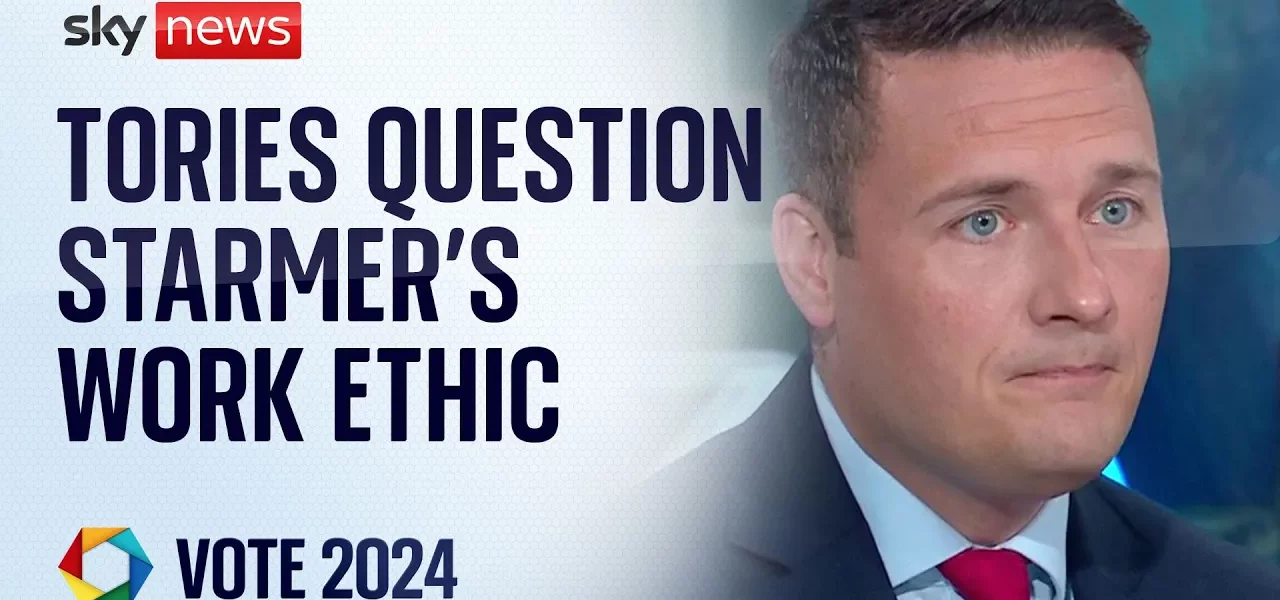K Starmer’s Vision for the NHS and Political Landscape

This article delves into K Starmer’s viewpoints as he positions himself for a potential role as Prime Minister, focusing on his commitment to the NHS and the contrasts with previous Conservative governance. We’ll explore the implications of his statements and the broader political context in the UK.
Introduction
K Starmer, the leader of the Labour Party, has been vocal about his priorities, particularly regarding the National Health Service (NHS) and how it has been managed under Conservative rule. As he prepares for a potential leadership role, Starmer emphasizes the importance of family values and work-life balance, drawing parallels with former Prime Minister David Cameron’s laid-back approach. This article examines Starmer’s positions, critiques of the Conservative Party, and what his plans could mean for the future of healthcare in the UK.
Family Values and Political Priorities
Starmer’s reflections on family life reveal a personal side to his political ambitions. He has often stated that protecting family time, such as Friday nights with his children, is essential. This sentiment aligns with a broader narrative of being a compassionate and relatable leader.
Contrast with Conservative Leadership
Starmer’s approach stands in stark contrast to the Conservative Party’s recent scandals, particularly the infamous Downing Street parties during lockdown. The hypocrisy of the Conservatives, particularly in criticizing others’ work ethics while engaging in such behavior, forms a critical part of Starmer’s campaign narrative.
- Emphasis on work-life balance.
- Focus on family values in political discourse.
- Critique of Conservative leadership ethics.
NHS Under Pressure: Starmer’s Plans for Reform
Starmer has pledged to prioritize the NHS, particularly addressing the significant waiting lists and the ongoing Junior doctor strikes, which he cites as failures of the Conservative government. He acknowledges the real issues facing healthcare professionals and aims to negotiate better pay and working conditions.
Addressing Waiting Lists
With over a million delayed operations currently affecting patients, Starmer’s government would need to act swiftly. He proposes several strategies to tackle this crisis:
- Engaging in negotiations with Junior doctors’ representatives.
- Implementing reforms to improve working conditions.
- Exploring partnerships with private healthcare providers to alleviate NHS pressure.
Negotiation Over Confrontation
Starmer believes that constructive dialogue is essential for resolving disputes within the NHS. He expresses a willingness to work with organizations like the British Medical Association (BMA) to find common ground.
Comparative Analysis: NHS in England vs. Wales
The performance of the NHS varies across the UK, with particular attention drawn to Wales, where Labour has been in power for 25 years. Starmer acknowledges the criticisms of Labour’s record in Wales but argues that the broader context of UK healthcare governance impacts these outcomes.
Understanding Devolved Healthcare Systems
Devolution has led to different healthcare policies in Wales compared to England. Starmer asserts that while Labour has been governing in Wales, the decisions made in Westminster still influence healthcare outcomes across the UK.
- Wales faces higher ambulance waiting times compared to England.
- Healthcare funding and its allocation differ markedly between regions.
- Starmer emphasizes the need for a cohesive strategy across the UK.
Financial Considerations and Budgeting for the NHS
Addressing the Institute for Fiscal Studies (IFS) concerns over Labour’s financial plans, Starmer argues that the focus should not solely be on increased spending but rather on more effective use of existing funds. He highlights the need to optimize the substantial budget currently allocated to the NHS.
Efficient Allocation of Resources
Starmer suggests that improving efficiency could mitigate the need for additional funding:
- Streamlining administrative processes.
- Integrating private sector capabilities for specific services.
- Enhancing preventive care to reduce long-term costs.
Partnership with Private Providers
While some may view partnerships with private companies as controversial, Starmer contends that utilizing their capacity can help alleviate the NHS’s burden. He cites examples of how private opticians could assist in managing routine eye care, allowing the NHS to focus on more critical needs.
Conclusion
As K Starmer positions himself for potential leadership, his commitment to reforming the NHS and addressing the shortcomings of the Conservative government resonates with many voters. By focusing on family values, effective healthcare management, and pragmatic solutions to funding issues, Starmer presents a compelling case for change. It is essential for voters to recognize the implications of their choices in the upcoming election, as the future of the NHS and the country’s health policies hangs in the balance. For more insights on UK politics and healthcare policies, explore our related articles.
“`




